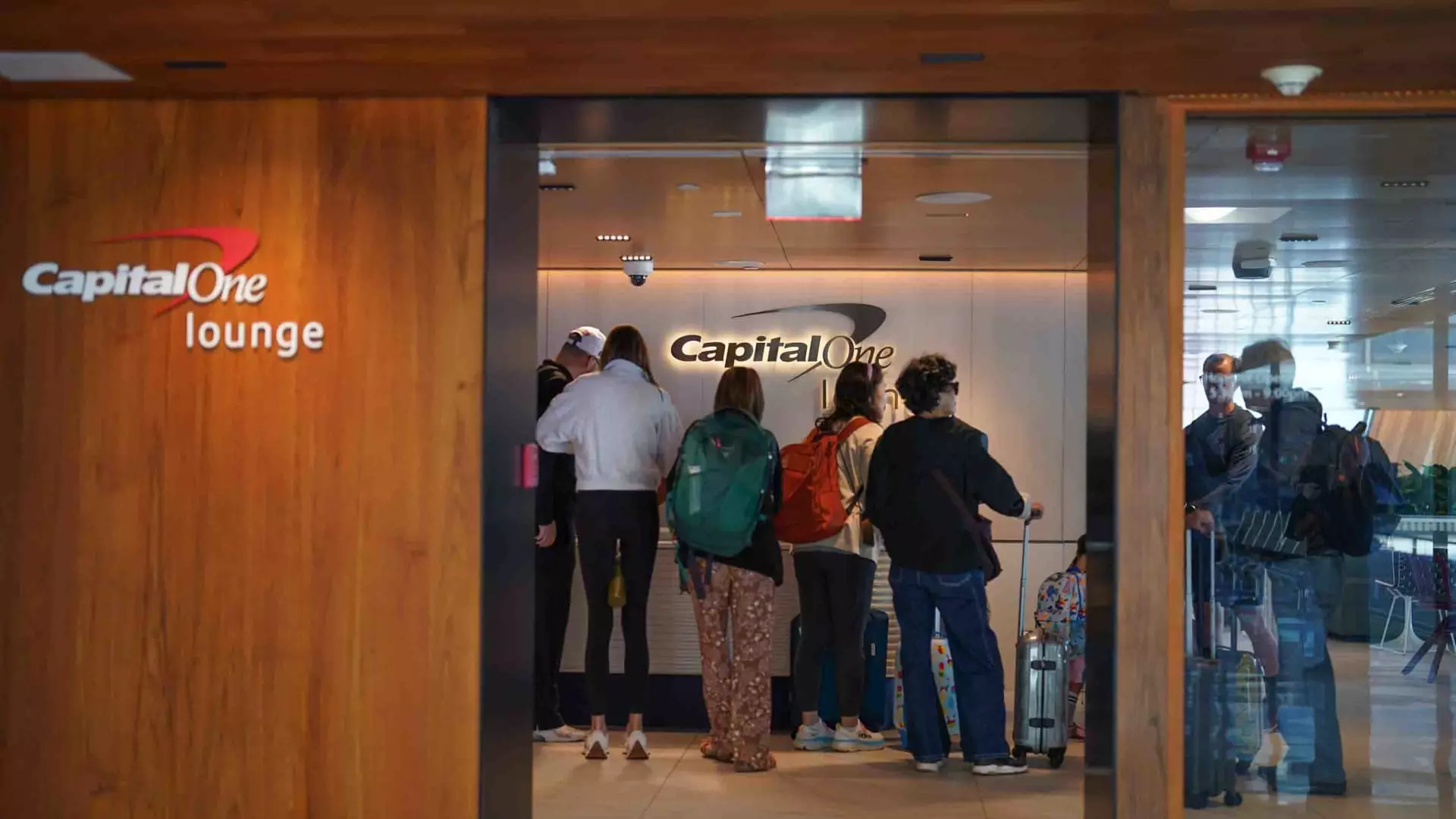Air travel has long been romanticized; the glamour of flying often leads to daydreams of high skies and luxury awaiting at the gate. However, as airplane ticket prices experience a welcome dip, the contrasting reality of airport lounges casts a looming shadow over the traveler’s experience. Capital One recently announced significant changes to its lounge access policies, which serve as a microcosm of a broader issue within the aviation industry—access to comfort amid crowded terminals is becoming an exclusive luxury that’s increasingly out of reach for many.
In a move that essentially monetizes the once ubiquitous privilege of guest access, Capital One will impose additional fees for visitors accompanying cardholders. As of February 1, the adjustments stipulate that not only must one be a primary Venture X or Venture X Business cardholder, but all additional cardholders and guests will be subjected to hefty charges. A family outing that may have previously been seamless now bears the burden of a $125 annual fee for additional members and fees upwards of $45 per guest—an indicative trend that speaks volumes about the evolving landscape of travel.
Exclusive Access at a Premium Price
The attraction of airport lounges has been their promise of solitude and tranquility amidst the chaos of bustling terminals. However, the price tags now affixed to full lounge access raise the question—are we selling comfort and relaxation at increasingly higher costs? Capital One’s requirement for primary cardholders to spend a staggering $75,000 annually to access complimentary guest privileges accentuates a growing divide in travel experiences, likely excluding many families from enjoying what was meant to be a shared luxury.
American Express’s earlier policy shift towards limiting guest access reflects a troubling trend across the industry. The logic behind such drastic measures is apparent: lounges are overflowing, and maintaining an optimal experience for the elite few cannot coexist with the reality of guest hordes. Yet, the approach feels inherently flawed. Instead of incentivizing travel for families or groups, these companies perpetuate a culture of exclusivity—a discerning club that discriminates based on financial prowess rather than shared experiences.
The Privilege of Being a Premium Cardholder
The rises in operational costs are no doubt compelling credit card companies to raise the bar for lounge access, but the implications for everyday travelers cannot be overlooked. For the average person aspiring to visit a lounge, the barriers have increased dramatically. The perception that only the financially privileged merit access invites societal scrutiny. It begs the question: have we lost sight of community in the pursuit of profits?
Capital One, in a bid to solidify itself as a challenger brand, now finds itself paradoxically folding into the very elite class it sought to disrupt. The dilemma emerges as the company emphasizes its desire to preserve a “great airport lounge experience.” However, by adopting measures akin to those of American Express and Chase, are they not merely emulating the exclusivity they aimed to challenge? As competition sharpens among credit card companies, it appears the once vibrant ecosystem of shared travel experiences is fading into a world governed by escalating annual fees and precise spending limits.
The Overcrowding Conundrum
The overcrowding issue isn’t isolated to lounge access alone; it reflects a deeper systemic problem faced by the entire air travel industry. Delta Air Lines’ recent shifts in lounge access policies—welcoming annual caps while eliminating unlimited visits—mirror Capital One’s decisions and emphasize an unrelenting trend towards tighter restrictions. While larger lounges may ease some congestion, these changes translate primarily into further stratification of privilege. The lounges, once havens for all—now serve as battlegrounds where the elite are fiercely protective of their comfort.
This apparent paradox of luxury is disconcerting. The question remains: as travel becomes more affordable on the surface, what toll does it take on the average family seeking a touch of luxury? The push towards exclusivity not only isolates travelers but also dilutes the very essence of travel—shared experiences and connection. The focus on financial exclusivity contrasts starkly with the deeper values travel ought to represent, complicating the notion of what it means to enjoy a moment of respite between flights.
As the trends unfold, one can only hope that the camaraderie of travel experiences can return, lifting the veil of elitism that now permeates the very spaces crafted for solace and connection.


Leave a Reply